Rural women are the frontline warriors against climate change
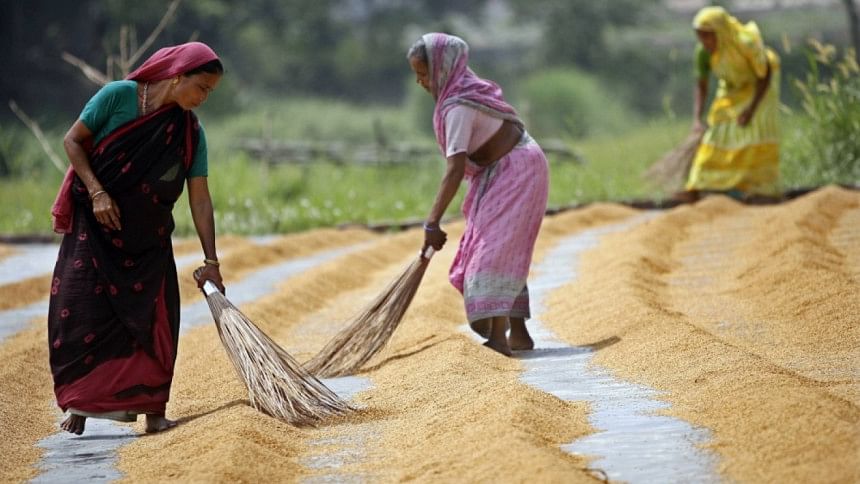
The first International Day of Rural Women was observed on October 15, 2008, by the United Nations in recognition of women's contribution to promoting rural development, maintaining food security, and addressing poverty within society and families. In recent years the contribution of rural women in addressing climate change impacts is being increasingly recognised. Today, rural women, including Indigenous women, are standing as a shield against the impacts of climate change through finding local solutions to minimise the devastation being caused by climate change.
The theme of this year's International Day of Rural Women is "Rural Women Sustaining Nature for Our Collective Future: Building climate resilience, conserving biodiversity, and caring for land towards gender equality and empowerment of women and girls." The theme reflects the growing recognition of rural women's role in achieving the sustainable development goals for a just, gender-equal, and climate-resilient world. As per a UN report, women are responsible for half of the world's food production while working as "environmental and biodiversity stewards." As farmers, women have learned how to cope with and adapt to climate change, for example, by practising sustainable agriculture in harmony with nature, switching to drought-resistant seeds, employing low-impact or organic soil management techniques, or leading community-based reforestation and restoration efforts. There is little doubt that women are on the frontlines of the climate crisis and uniquely situated to be agents of change to help find ways to mitigate the causes of global warming and adapt to its impacts on the ground.
Bangladesh is ranked the seventh most climate vulnerable country in the world. Floods, cyclones, and droughts have increased in severity and frequency. River erosion, salinity, and rising sea levels render thousands homeless every year forcing them to migrate to cities in search of food and livelihood options. Several studies show that women are disproportionately affected by these calamities and are vulnerable to extreme poverty, health challenges, and multiple forms of violence. These are barriers towards women attaining gender equality and access to resources.
However, it is not only climate change impacts that prevent women from achieving gender equality. Structural barriers and discriminatory social norms continue to constrain women's decision-making power and political participation in rural households and communities. Women and girls in rural areas lack equal access to productive resources and assets, public services, such as education, health care, and infrastructure, including water and sanitation. Globally, with few exceptions, every gender and development indicator reveals that rural women fare worse than rural men and urban women and disproportionately experience poverty, exclusion, and the effects of climate change.
Rural women have less access to a range of resources, from land rights and credit to education and technology. If women had the same access to productive resources as men, farm yields could increase by 20 to30 percent, feeding an additional 100 to 150 million people globally, according to UN data.
In Bangladesh, women are involved in 48 percent of agriculture-related employment such as milk production, agriculture, fish cultivation, etc. Their labour in seed preservation, poultry raising, vegetable gardening, and care work remains unrecognised and is not counted in the GDP. Despite their critical role in providing food security and nutrition for their families, they remain undervalued. Rural women are also disproportionately exposed to energy poverty and energy-related challenges. For example, indoor pollution is a severe problem for women and girls in Bangladesh. In addition, women and girls spend considerable time gathering fuel, cooking, and performing other household chores, resulting in time poverty, which is another dimension of gender inequality.
However, in spite of the many challenges women face, they are increasingly playing a crucial role as agents of change in the fight against climate change impacts. The UN slogan terms them as "environmental and biodiversity stewards." Rural women in Bangladesh are standing up to find local solutions to feed and protect their families in times of crisis. The fame Bangladesh has achieved globally for adaptation can be credited to women's role in the fight against climate change along with their male counterparts.
Niva Rani Talukder, a climate warrior from Kalaya village under Sunamganj district, has changed cultivation patterns to offset the impact of inundation during severe monsoons. She learned about floating gardening and built three floating platforms with water hyacinths adjacent to her house. She now protects her crop which used to be destroyed three times a year due to flash floods. She does not need to use fertiliser or pesticides. Niva Rani has ensured food security for her family while transferring this knowledge to her community.
Tahmina, an inhabitant from Andharia village under Bagerhat district, where salinity is a major barrier to vegetable cultivation, learned how to cultivate vegetables in a gher (bank of ponds where aquaculture is practised) with the help of the Department of Agricultural Extension (DAE). Tahmina proudly shared, "I used to grow vegetables before, but I never earned such a good profit." Since starting with the new methods, she has earned Tk 11,000 from selling vegetables, after meeting her family's needs.
There are hundreds of such stories where women play pivotal roles in the protection and well-being of their families. During natural disasters such as floods and cyclones, it is women who store essential items such as fuels, matches and dry food, for example, rice, peas, puffed rice, flattened rice and molasses. They also prepare portable mud stoves for future use and often collect and store firewood in dry places for later use. They also store fodder for domestic animals, seeds, food, harvest, blankets and valuables on machas (high wood or bamboo structures for storage), which are also used to protect goats and poultry from floodwater. There are often images of families floating on a plank during floods where women are seen cooking on mud stoves.
According to the findings of the report "State of Gender Equality and Climate Change in Bangladesh," commissioned by the Swedish Government, Bangladesh has made efforts to mainstream gender equality into climate actions through different policies and action plans. While these are positive steps, there remains a gap with regards to the interlinking of gender equality and climate change and also the coordination between government and NGO intervention. Some of the significant challenges include: limited capacity to mainstream gender into national and local policies, programmes and actions; lack of investment in gender-responsive actions; limited access of women's organisations; and low numbers of women in decision-making. Measures do not accord adequate recognition or acknowledgement to gender equality. Moreover, the lack of gender-responsive monitoring mechanisms or the lack of evaluation frameworks and indicators hinders the assessment of gender-related outcomes.
With the promise of a discrimination-free society, now is the time to take concrete actions to remove all discrimination against women and treat them as equal partners in the fight against climate change. The impacts of climate change are in no way "gender neutral." Several research and surveys conducted in recent times reveal the importance of taking steps to recognise the role of women as important agents of change.
This recognition has to be translated into policy actions such as including women in decision-making roles from the local to the national level in climate adaptation policies of the government and investments in women's education, skills, knowledge, and modern technologies to empower them to play a more significant role to address climate-related disasters.
Shaheen Anam is the executive director of Manusher Jonno Foundation.
Views expressed in this article are the author's own.
Follow The Daily Star Opinion on Facebook for the latest opinions, commentaries and analyses by experts and professionals. To contribute your article or letter to The Daily Star Opinion, see our guidelines for submission.
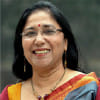
 For all latest news, follow The Daily Star's Google News channel.
For all latest news, follow The Daily Star's Google News channel. 
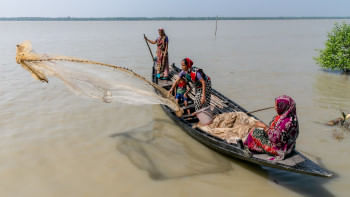
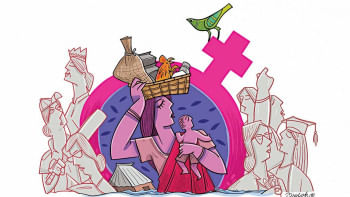


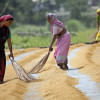
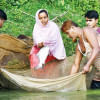


Comments